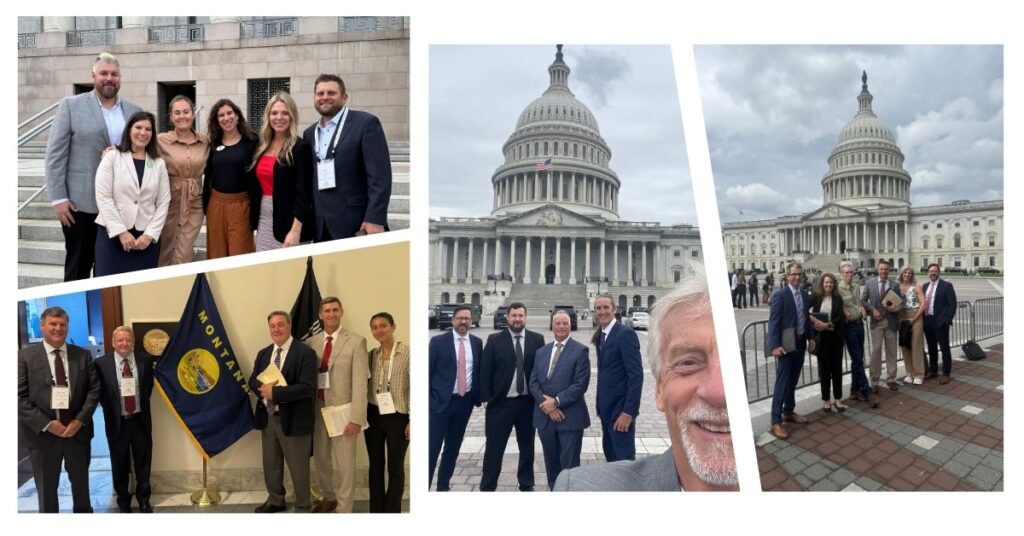
On October 29, 2025, the Outdoor Power Equipment Institute (OPEI), joined by several organizations including the Tree Care Industry Association (TCIA), sent a letter to Environmental Protection Agency (EPA) Administrator Lee Zeldin supporting OPEI’s petition for reconsideration of the EPA’s Final Rule, “California State Nonroad Engine Pollution Control Standards; Small Off-Road engines Regulations; Notice of Decision.” The letter urges the EPA to withdraw or reconsider the rule, arguing that the decision was based on several factual and procedural errors that could have major implications for manufacturers, dealers, and professional users of small-engine equipment nationwide.
Background
Under the federal Clean Air Act (CAA), states are generally preempted from setting their own nonroad engine emission standards. However, Section 209 of the CAA allows California to apply to the EPA for a waiver of federal preemption, permitting the state to enforce its own standards for certain categories of nonroad engines.
In 2021, the California Air Resources Board (CARB) adopted amendments to its Small Off-Road Engine (SORE) regulations, which govern engines under 25 horsepower. These engines power a wide range of commercial and residential equipment—including chainsaws, leaf blowers, string trimmers, lawn mowers, generators, and pressure washers—commonly used across the tree care, landscaping, construction, and maintenance industries. The 2021 SORE Amendments established a two-phase roadmap toward zero-emission standards, with a full phase-out of new gas-powered SORE engines by model year 2028.
On December 20, 2022, CARB submitted an authorization request to the EPA to allow California to enforce the 2021 SORE Amendments. On January 6, 2025, the EPA granted authorization in a Notice of Decision, allowing California to enforce the amendments.
Industry Pushback on EPA’s SORE Approval
On January 29, 2025, OPEI petitioned the EPA to reconsider its authorization, arguing that the decision rested on several key errors: disregarding manufacturer compliance-cost data, overstating the technical feasibility of zero-emission equipment, and allowing CARB to enforce portions of its program before obtaining EPA approval.
OPEI maintained that the EPA relied on retail product prices rather than manufacturer cost data, leading to an underestimation of compliance costs—industry data in the record estimated these costs upward of $1 billion. The petition also cited a December 2024 joint EPA–Department of Energy report that found commercial-grade SORE-powered equipment remains a “notable exception” to electrification trends because of limitations in battery cost, weight, and runtime—contradicting EPA’s own technical findings. Finally, OPEI noted that CARB adopted and began enforcing certain emission requirements as early as 2018, years before obtaining federal authorization, in violation of the Clean Air Act.
On February 10, 2025, OPEI filed a petition for judicial review with the U.S. Court of Appeals for the Ninth Circuit. Additional petitions were later filed by the American Fuel & Petrochemical Manufacturers (AFPM) and the Energy Marketers of America (EMA), and the cases were consolidated. In the spring of 2025, the court paused the litigation to allow the new administration time to review the rule.
On June 9, 2025, OPEI submitted a request for an administrative stay to the EPA, asking the Agency to postpone the rule’s implementation while the petitions for reconsideration and judicial review are pending.
Letter Supporting OPEI’s Petition
TCIA, along with seven other trade associations, signed on to a letter supporting OPEI’s petition for reconsideration of the EPA’s Final Rule. The letter reiterates errors in EPA’s authorization and emphasizes the impracticality and negative consequences of the 2021 SORE Amendments.
It also explains that CARB’s SORE Amendments extend beyond lawn and garden tools: other SORE-powered equipment—such as construction equipment, pressure washers, and portable generators—will face emission-reduction requirements in the near term, with zero-emission standards enforced in 2028. The letter argues this timeline creates unreasonable expectations for manufacturers, driving unrealistic demands for rapid redesign and investment.
The letter calls on the EPA to grant OPEI’s petition for reconsideration and withdraw its authorization for the 2021 SORE Amendments, or alternatively, to submit the decision to Congress for review under the Congressional Review Act (CRA). The signatories noted that the Agency itself recently determined California waivers are subject to congressional review. Earlier in 2025, Congress used the CRA to overturn EPA’s approval of California’s Advanced Clean Trucks and Advanced Clean Cars II waivers, which would have required an increasing share of zero-emission truck and passenger-vehicle sales in future model years.
TCIA will continue to monitor the status of California’s SORE Amendments, and update members when notable developments occur.
Your Voice in Washington. TCIA advocates Washington on behalf of all our members, and the tree care industry at large. We work to ensure lawmakers understand the unique challenges and risks of our profession, while pushing for industry-specific legislation that supports safety, growth, and operational success. To learn more about the issues we’re discussing, or how we make your voices heard in Washington, visit advocacy.tcia.org.


